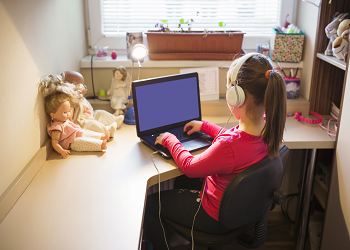Student Internet
Student Internet - Why that best suits Online Learning
Ten or twenty years ago, technology is not what it is today. The internet notably revolutionized how schools run and how students study. There is a wealth of information on the internet, both good and bad. The student internet must undergo careful monitoring to prevent the students from accessing inappropriate content.

Student Internet - 4 Reasons to choose
1. Access to Information
One of the most important uses of the internet is, of course, access to a vast array of information for both teachers and students. Anything they want to know is available online, and they do not have to rely on old and outdated encyclopedias. Teachers get a lot of resources online and help to improve on planning for lessons. Student internet ensures students can read ahead of their teachers, or watch videos on their subject of interest. Gone are the days when a teacher had to give extra lessons for students who did not grasp a concept.
2.Helps To Bridge Any Communication Gaps
The internet Filters for students in the classroom helps students and teachers avoid communication gaps. When information is shared digitally, for example, on a class forum, there are no cases of misplaced assignment sheets or notes. This improves class camaraderie by the students communicating outside the classroom. A class website allows students to download learning materials, chat amongst themselves, and share tips and information. Email helps a lot in students asking questions at any time, rather than having to wait for a school day.
3. Makes it Possible to Experience Virtual Field Trips
With student internet, students can take virtual trips, without leaving their classroom. For instance, students studying about Egypt and the Great Pyramids can watch videos of Egypt and take virtual tours of the Pyramids. For schools in rural areas, or on tight budgets, the kids can take a virtual museum or zoo tour.
4. Makes Assignments Flexible and Convenient
Not all students have the same learning style. Some learn faster than others do. Access to the class assignments online after school hours gives students a chance to catch up at their own pace. Having an online platform where students can submit assignments is an excellent help for those students who have a hard time concentrating in a busy class environment.
E-rate is a federally funded discount program that provides discounts on internet-access, wireless equipment, etc. The discounts range up to 90% and are available to schools and libraries that qualify.
With unlimited student internet access, students are likely to get into a lot of trouble by accessing inappropriate websites, which contain pornography and nudity. As a deterrent, the only way schools can access the E-rate discount is to install internet filters.
How Student Internet Works as Internet Filters
Internet filters are software that prevents users from accessing specific sites. The internet filters work in three main ways:
Keyword blocking
The screens in student internet lookout for particular keywords and websites, which contain these words, blocked from access. The school administrators may set the keyword list, but they can open up specific sites if there is a genuine reason, such as research, but within reason.
Site blocking
The internet filters for students usually get a list of blocked sites from their providers. These sites have obscenity, nudity, and other age-inappropriate content. The software providers generally update the list or school administrators can download it from the software provider’s website.
Web rating systems
The latest improvement to internet filtering for Students is the web rating system, which merges into the web browsers and web pages. This software rates websites in terms of brutality, sex, nudity, and language. A third party either manages these ratings or installed on the web page. The web browser is set to recognize pages rated on specific levels, such as mild expletives accepted, but no nudity allowed.
Conclusion
Since technology is a big part of education today, it is tough to study without it. Schools have embraced student internet as a way of helping students learn better and make the teachers’ work more comfortable by providing teaching resources. Students can learn at their own pace and ask questions via email or online class platforms.
It is practically impossible to monitor children while online, so student internet has to be censored via internet filters. These filters ensure students do not access sites that contain inappropriate content such as nudity and violence.